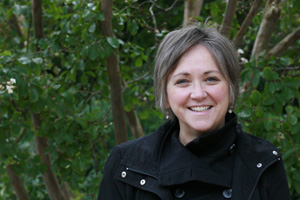Research
Language, Discourse & Society E-Journal

According to sociology professor Celine-Marie Pascale, language is more than just a tool we use to communicate with one another. To her and the members of the Language and Society Committee of the International Sociology Association (ISA), the world gains meaning through language.
“One person’s terrorist is another person’s freedom fighter. The language we use both reflects and shapes the kind of world we create around us,” explains Pascale. “So if I tell you a homeless person was beaten up on the Mall, you hear that in a certain way, but if I tell you that someone who can’t afford housing was beaten up on the Mall, you hear that differently.”
By studying the way in which language is used, sociologists gain insight into culture, power, and inequality. To explore language, they may work in broad concepts and theories or empirically, with some scholars going so far as to count the number of seconds of pause between words.
Some of these sociology scholars are members of the Language and Society Committee, of which Pascale is currently serving as president. Her committee is one of 55 research committees within the 5,000-member International Sociologist Association that specialize in different sociological interests.
The approximately 150 international members of the Language and Society Committee use “a wide range of methods to make sense of how people make meaning—how we make some things really important in life and other things not important at all, how we marginalize some people and privilege others,” Pascale explains.
These concepts and more will be explored in a new e-journal, Language, Discourse & Society, edited by Professor Federico Farinia of the University of Modena and Reggio, Italy. Members of the Language & Society Committee agreed to create an e-journal for the field at the 2010 World Congress meeting in Sweden.
“There are not a lot of outlets for publishing articles that focus on sociologic analysis of language and representation, so it’s a much needed resource in the field,” Pascale says.
The long-awaited first issue will be available online in French, English, and Spanish and accessible to everyone, including researchers outside the realm of the ISA. Pascale says one of the advantages of creating an e-journal rather than a print journal is being able to share the content with a wider audience while cutting costs.
Pascale says that one of the most challenging aspects of creating an international e-journal from the ground up has been the process of selecting scholarly submissions. “A new journal is always a high-risk place for scholars to publish if you don’t have tenure. Everyone wants to publish in a journal with a very strong reputation. I think the first two years will determine if the journal’s able to succeed,” she says.
Pascale and her colleagues on the editorial board have garnered a substantial amount of strong academic work to meet their goal of publishing five to eight 20 to 30 page articles. Pascale says it’s hard to say which topics will be covered in the journal. In her own research, she’s come across articles on topics that she hopes could be covered in Language, Discourse & Society including hate speech in Sweden, conflict in Bulgaria over the airing of Turkish soap operas, and Chinese censorship on the Internet. “That’s just a small sampling of the kind of work that people are doing,” she says.
Highlighting the academic accomplishments of her peers will not only honor the work being done on language and society, but also encourage thoughtful discussions. “I hope that the journal becomes a home for very rich debates about both the theory and methods used to study language and about the content of those studies. We want it to become a vibrant, intellectual home for international scholars who are engaged in sociological analysis of systems of signification, how things become meaningful.”
While waiting for the first issue to be published, Pascale and other editors are patiently hoping their hard work over the years will prove as valuable as they’ve believed it to be for quite some time now.
“I wish I had a crystal ball. Of course I want it to be well received, but it’s hard to anticipate,” she says. “We’re doing everything we can to make this journal useful to people who work in the field. And if it truly is useful, then it will be well received.”
